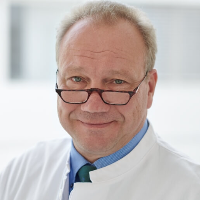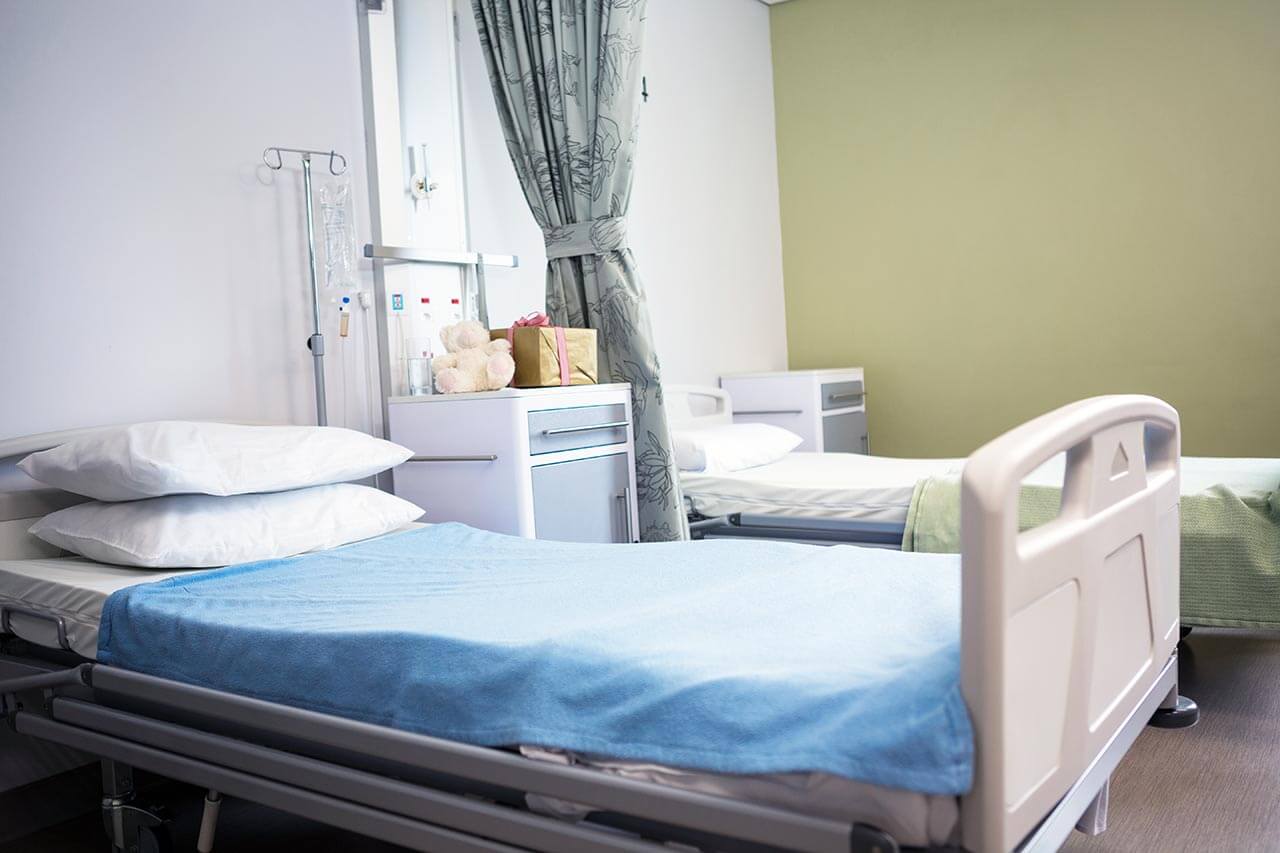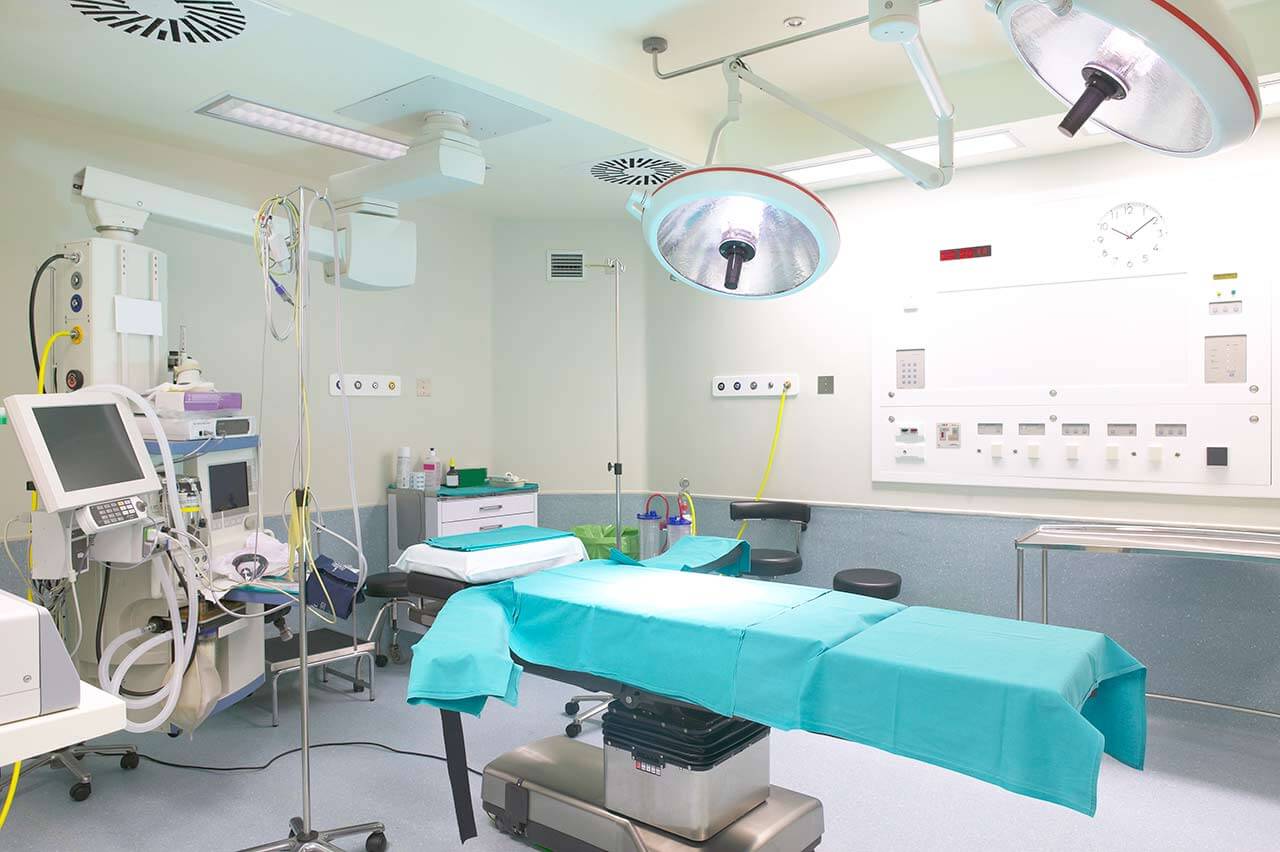
The program includes:
- Initial presentation in the clinic
- clinical history taking
- physical examination
- review of medical records
- laboratory tests:
- complete blood count
- general urine analysis
- biochemical analysis of blood
- TSH-basal, fT3, fT4
- tumor markers, including n-myc
- indicators of inflammation
- indicators blood coagulation
- CT / MRI of the abdomen and retriperitoneum
abdominal and retroperitoneal ultrasound - preoperative care
- resection of the tumor
- histologically and immunohistochemically
examination of the remote tissues - symptomatic treatment
- control examinations
- the cost of essential medicines and materials
- nursing services
- full hospital accommodation
- explanation of future recommendations
Required documents
- Medical records
- Brain MRI/CT scan (not older than 3 months)
- Biopsy results (if available)
Service
You may also book:
 BookingHealth Price from:
BookingHealth Price from:
About the department
The Department of Pediatric Surgery and Urology at the Children's Hospital Nuremberg offers the full range of diagnostics and treatment for young patients in the areas of its competence. The department provides highly qualified medical care for newborns, young children, and adolescents up to the age of 18. Special attention is paid to the surgical repair of congenital malformations, surgery for gastrointestinal diseases, malignant tumors, pathologies of the reproductive system in boys, and diseases of the urinary system in boys and girls. The department has accumulated impressive experience in the treatment of hydrocephalus and spina bifida. The young patients receive both inpatient and outpatient medical care in the department. The health facility has 42 beds for patient accommodation. The department's team of doctors cares about the maximum comfort of young patients, and therefore, the accommodation of one of the parents with a child is also possible. It is important for specialists to provide the child with effective treatment without pain, so sparing therapeutic techniques are used here. Many surgical interventions are performed using minimally invasive techniques without any extensive skin or soft tissue incisions. The department has an excellent technical base and comfortable infrastructure adapted to the needs of children. Special attention is devoted to creating a pleasant and friendly atmosphere, along with providing sensitive care for the child. The department is headed by Prof. Dr. med. Dr. h.c. Maximilian Stehr.
The team of the department's surgeons specializes in the treatment of gastrointestinal diseases in children. The doctors focus on young patients with esophageal stricture, Hirschsprung's disease, anorectal atresia, and bowel obstruction. An esophageal stricture in a child involves the narrowing of the lumen of the organ that hinders the movement of food to the stomach. The most effective methods of eliminating stricture are balloon dilatation with endoscopic techniques and classical surgery. The last option is considered a last-line treatment and involves the resection of the narrowed esophageal segment followed by esophagoplasty (replacement of the removed part of the esophagus with stomach or intestinal tissue).
The department's pediatric surgeons often treat young patients with Hirschsprung's disease. The disease is a congenital colon anomaly characterized by the absence of nerve cells (ganglia) in certain segments. The pathological condition leads to impaired peristalsis and prevents the normal movement of the food bolus through the digestive tract. The only effective treatment option for Hirschsprung's disease is surgery. The extent of surgery depends on the age of the child, the extent of the affected intestine, and the complexity of the resulting disorders. The department's specialists perform single-stage and two-stage interventions for Hirschsprung's disease. In the first case, the surgeon removes the affected segment of the colon and immediately forms an anastomosis to restore the continuity of the digestive tract. A two-stage operation involves excision of the affected colon with the formation of a colostomy for fecal diversion. Surgeons then perform reconstructive plastic surgery, during which the colostomy is sutured with a bowel anastomosis. Surgery for Hirschsprung's disease may also be performed using minimally invasive techniques, if clinically indicated.
An integral part of the department's clinical practice is the conservative and surgical treatment of bone fractures and other injuries in children. Simple bone fractures are treated with casts or splinting, and in complex cases, the department's specialists perform osteosynthesis with bone fragment repositioning. In some situations, external fixation systems can be used for complex fractures to immobilize the extremity. The department’s doctors take care to eliminate pain as much as possible, so adequate pain relief is used during treatment.
The department has gained long experience in the surgical repair of hydrocephalus and spina bifida in children. Hydrocephalus (water on the brain) is a condition characterized by the accumulation of cerebrospinal fluid in the cerebral ventricles and, sometimes, in the subarachnoid space. The pathological process affects the physical and psycho-emotional states of the child. The most common treatment method for hydrocephalus is shunting. Surgeons implant a special system of tubes and valves in the brain to redirect excess cerebrospinal fluid to other body cavities (most often into the abdominal cavity).
The department's range of medical services also includes the treatment of urologic diseases in children. Doctors regularly treat varicocele, hypospadias, and cryptorchidism in boys, ureteropelvic junction obstruction, enuresis, and other bladder emptying disorders. Depending on the particular clinical case, conservative or surgical treatment may be prescribed for the child. For example, surgical methods (most often minimally invasive) are used to repair hypospadias and varicocele, while enuresis responds well to conservative therapy.
The department's key clinical areas include:
- Pediatric surgery
- Neonatal surgery
- Surgical repair of congenital malformations in newborns
- Surgery for gastrointestinal diseases
- Surgery for esophageal stricture
- Surgery for Hirschsprung's disease
- Surgery for anorectal atresia
- Surgery for bowel obstruction
- Surgery for malignant tumors
- Conservative and surgical treatment of bone fractures and other injuries
- Removal of hemangiomas and lymphangiomas using laser and cryotherapy techniques
- Surgical repair of the hydrocephalus and spina bifida
- Surgical repair of pectus excavatum
- Neonatal surgery
- Pediatric urology
- Surgical repair of congenital malformations of the reproductive system in boys
- Varicocele
- Hypospadias
- Cryptorchidism
- Surgical repair of ureteropelvic junction obstruction
- Conservative treatment of enuresis and other bladder emptying disorders
- Surgical repair of congenital malformations of the reproductive system in boys
- Other medical services
Curriculum vitae
Higher Education and Professional Career
- 1983 - 1990 Medical studies, Friedrich Alexander University of Erlangen-Nuremberg.
- 1990 - 1992 Internship, Department of Pediatric Surgery, University Hospital of Ludwig Maximilian University of Munich.
- 05.1992 Thesis defense, summa cum laude, Department of Pediatric Cardiology, University Hospital Erlangen.
- 1992 - 1994 Assistant Physician, Department of Pediatric Surgery, University Hospital of Ludwig Maximilian University of Munich.
- 1994 - 1995 Assistant Physician, Department of Urology, University Hospital Erlangen-Nuremberg.
- 1996 - 2000 Assistant Physician, Department of Pediatric Surgery, University Hospital of Ludwig Maximilian University of Munich.
- 05.2000 Board certification in Pediatric Surgery.
- 10.2000 - 12.2001 Research Fellow, Department of Urology, Boston Children's Hospital, USA.
- 2002 - 2003 Assistant Physician, Department of Pediatric Surgery, University Hospital of Ludwig Maximilian University of Munich.
- Since 04.2003 Senior Physician and Head Physician of the Manometry Laboratory, Department of Pediatric Surgery, University Hospital of Ludwig Maximilian University of Munich.
- Since 2005 Head of the Working Group on Minimally Invasive Surgery, Department of Pediatric and Adolescent Medicine, University Hospital of Ludwig Maximilian University of Munich.
- 29.06.2005 Habilitation, Ludwig Maximilian University of Munich.
- 02.03.2006 Fellow of the European Academy of Pediatric Urology (FEAPU).
- 01.08.2006 Invitation to the position of W2 Professor for Pediatric Surgery, Department of Pediatric Surgery, University Hospital of Ludwig Maximilian University of Munich.
- Since 01.2009 First Chairman of the Working Group on Pediatric Urology of the German Society of Pediatric Surgery (DGKCH).
- 01.07.2012 Lifetime appointment as W2 Professor for Pediatric Surgery, Department of Pediatric Surgery, University Hospital of Ludwig Maximilian University of Munich.
- Since 01.11.2012 Head Physician, Department of Pediatric Surgery and Urology, Children's Hospital Nuremberg.
- 21.03.2016 Honorary Doctorate, University of Mostar.
Memberships in Professional Societies
- German Society of Pediatric Surgery (DGKCH).
- South German Society of Pediatric Surgery.
- German Society of Pediatric and Adolescent Medicine (DGKJ).
- German Society of Urology (DGU).
- European Society for Paediatric Urology (ESPU).
- Working Group on Pediatric Urology (first Chairman), German Society of Pediatric Surgery (DGKCH).
- German Enuresis Academy (Treasurer).
- International Society of Paediatric Surgical Oncology (IPSO).
- Chrokokids association for supporting children with chronic diseases.
Photo of the doctor: (c) Klinik Hallerwiese-Cnopfsche Kinderklinik
About hospital
The Children's Hospital Nuremberg is a maximum care health facility that focuses on providing effective care for young patients in a pleasant and comfortable environment. The hospital admits children and adolescents up to 18 years old. Medical care can be provided on an inpatient or outpatient basis. Highly qualified doctors and experienced nursing staff work with children. The specialists get along well with young patients. The goal of the hospital's medical team is to provide patients with modern and most sparing treatment. It is also important for doctors to eliminate pain and discomfort during the therapeutic process. The key to successful clinical practice in the medical facility is the close cooperation of doctors, their high competence and vast experience, as well as the hospital's state-of-the-art medical equipment and modern infrastructure.
The hospital has more than ten specialized departments. Priority areas include pediatric otolaryngology, surgery, urology, orthopedics, endocrinology, oncology, hematology, pulmonology, and neuropediatrics. Patients are offered innovative treatments that have proven themselves at the international level. Surgical treatment involves the wide use of sparing, minimally invasive techniques, after which children recover quickly and experience virtually no pain.
The hospital admits more than 15,000 young patients every year, most of whom are treated on an outpatient basis without mandatory hospitalization. Each child receives personalized care. The treatment is accurately planned, and the doctor tells the parents about its specifics. An important aspect is a friendly and attentive attitude towards children, as well as understanding their fears and needs.
The Children's Hospital Nuremberg has repeatedly received the "Ausgezeichnet. FÜR KINDER" quality certificate. This certification is granted to the best children's hospitals in Germany, which regularly demonstrate high treatment success rates.
Photo: (с) depositphotos
Accommodation in hospital
Patients rooms
The patients of the Children's Hospital Nuremberg live in comfortable rooms designed in a child-friendly style. The furnishing of a patient room includes a comfortable automatically adjustable bed, a bedside table, a table, chairs, and a wardrobe. The hospital has a Rooming-in system, thanks to which parents can stay in the same room with their child. To ensure interesting and pleasant leisure time for children, the hospital has excellent playrooms, where every child can find something to do and toys to their liking.
Meals and Menus
The patients at the hospital are offered three tasty and balanced meals a day: breakfast, lunch, and dinner. With appropriate clinical indications, an individual menu may be developed for the child.
Further details
Standard rooms include:




